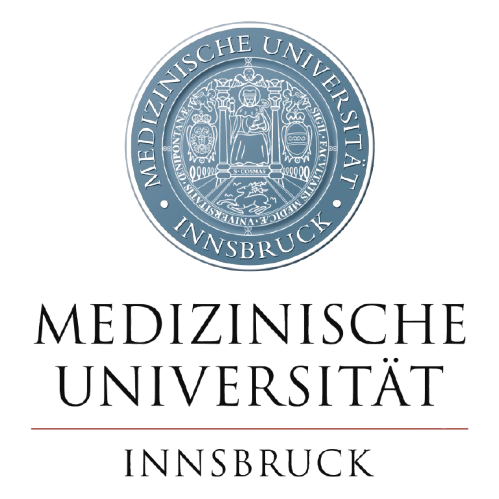


Editorial: Parents with mental and/or substance use disorders and their children, volume III
Jean Lilian Paul, Joanne Nicholson, Anja Wittkowski, Geneviève Piché
33 contributions from 13 countries shed light on the situation of families with mentally ill or addicted parents. They provide insights into the reality of life and the needs of affected families, show progress in family-focused interventions, innovative measurement methods and in dealing with trauma, attachment and sustainability issues. In addition, they address systemic challenges and previously underrepresented perspectives, for example of fathers, children, people with disabilities and cultural minorities.

Nicholson J, Paul JL, Piché G and Wittkowski A (2025) Editorial: Parents with mental and/or substance use disorders and their children, volume III. Front. Psychiatry 16:1630833. doi: 10.3389/fpsyt.2025.1630833

Perinatal and infant mental health care in Austria
Zechmeister-Koss Ingrid, Hörtnagl Christine, Astrid Lampe, Jean Lilian Paul
Perinatal mental illness (PMI) affects one in five mothers and one in ten fathers. And while there is clear evidence of potentially harmful effects on the health of parents and children, there are still major gaps in coverage in this area. In the following paper, the support services offered with regard to perinatal mental illnesses in Austria are analysed and presented in detail.

Zechmeister-Koss, I., Hörtnagl, C., Lampe, A. et al. Perinatal and infant mental health care in Austria. Neuropsychiatr (2024). https://doi.org/10.1007/s40211-024-00516-0

Deconstructing stigmatising narratives: a qualitative analysis of contrast devices in interviews with mothers with a mental illness
Schamschula Monika, Paul Jean Lillian
As part of an empirical study, it was investigated how mothers with mental illnesses position themselves in interviews (based on the Village Project), in particular through the use of contrast agents as a strategy to cope with stigmatizing discourses (distancing from derogatory terms). The aim is to contribute to deepening the understanding of stigmatization in the context of motherhood and mental health and to emphasize the importance of gender-specific dynamics in research.

Schamschula, M., Paul, J.L. Deconstructing stigmatising narratives: a qualitative analysis of contrast devices in interviews with mothers with a mental illness. BMC Psychol 12, 433 (2024). https://doi.org/10.1186/s40359-024-01933-0

Towards effective screening for paternal perinatal mental illness: a meta-review of instruments and research gaps
Schöch Philipp, Hölzle Laura, Lampe Astrid, Hörtnagl Christine, Zechmeister-Koss Ingrid, Buchheim Anna, Paul Jean Lillian
Despite increasing awareness of men’s mental health during the perinatal period, perinatal mental illness in fathers (PPMI) is often not recognized. Stigma and men’s reluctance to seek help exacerbate this problem. Neglecting the mental health of new fathers not only increases their risk of mental illness of their own, but also has a profound and long-term impact on their families. This meta-review systematically identifies screening tools of PPMI symptoms, assesses their psychometric characteristics and applicability, and identifies gaps and limitations.

Schöch P, Hölzle L, Lampe A, Hörtnagl C, Zechmeister-Koss I, Buchheim A and Paul JL (2024) Towards effective screening for paternal perinatal mental illness: a meta-review of instruments and research gaps. Front. Public Health 12:1393729. doi: 10.3389/fpubh.2024.1393729

Identifying and synthesizing components of perinatal mental health peer support – a systematic review
Hölzle Laura, Schöch Philipp, Hörtnagl Christine, Buchheim Anna, Lampe Astrid, Zechmeister-Koss Ingrid, Paul Jean Lillian
Peer support is recommended for perinatal mental illnesses in prevention and therapy. Nevertheless, the specific impact factors of this type of intervention are not yet fully understood. The aim of this review was to identify peer support programmes in the perinatal period and to analyse their components. The resulting findings are intended to facilitate the future planning and implementation of peer support programmes.

Hölzle L, Schöch P, Hörtnagl C, Buchheim A, Lampe A, Zechmeister-Koss I and Paul JL (2024) Identifying and synthesizing components of perinatal mental health peer support – a systematic review. Front. Psychiatry 15:1389545. doi: 10.3389/fpsyt.2024.1389545

Perinatal and infant mental health care in Austria – A mapping report of existing prevention, screening and care structures, with a specific focus on Tyrol
Zechmeister-Koss, Ingrid
Perinatal mental illness is a common and serious complication during pregnancy and in the first year after childbirth: up to 20% of women and 10% of men suffer from mental health problems such as depression or anxiety disorders during the perinatal period. This report describes the epidemiological situation as well as the existing offers in the field of prevention and care of PMI in Austria at a glance and for Tyrol in detail.

Zechmeister-Koss, I. Perinatal and infant mental health care in Austria. A mapping report of existing prevention, screening and care structures, with a specific focus on Tyrol. AIHTA Project Report No. 151. 2023. Vienna: HTA Austria – Austrian Institute for Health Technology Assessment GmbH.

Perinatal and infant mental health care models and pathways
Reinsperger, Inanna & Paul, Jean
This scoping review provides a comprehensive overview of international perinatal psychiatric care models and pathways. The results of this report can be used for further discussion and serve as a basis for the design, further development and implementation of PIMH care in Austria.

Reinsperger I, Paul J. Perinatal and infant mental health care models and pathways. A scoping review. AIHTA Project Report No.: 148; 2022. Vienna: HTA Austria – Austrian Institute for Health Technology Assessment GmbH.

Elena Toffol, Markus Stracke, Neele Harlos, Stefanie Lambrecht, Florian Brandt, Sören Friedrich, Sonja Kennard, Lasse Wenzel, Giovanni de Girolamo, Kristin Gilbert, Corinna Reck, Kathleen Otto, Ricarda Steinmayr, Babette Renneberg, Jean L. Paul, Anne A. E. Thorup, Christina Schwenck, Anna-Lena Zietlow, Linda Wirthwein & Hanna Christiansen
Children of parents with mental illness (COPMI) are at increased risk of developing mental health problems themselves. Although international projects exist to support these families, planning and implementation often face challenges, and specific interventions for COPMI are not yet established in clinical practice. This paper presents four European projects targeting the mental health of families and summarises the key findings to make them available to the public and research as “Lessons Learned “.

